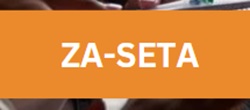Student Loan Application Guide (2025)

Student Loan Application Guide (2025)
Step by step guide on Student Loan Application Guide (2025) finding the best loan for your field of study.
If you’re looking to apply for a student loan in South Africa in 2025, here’s a clear step-by-step guide to help you understand the process and available options:
🎓 Student Loan Application Guide (2025)

🔹 1. Apply for NSFAS (National Student Financial Aid Scheme)
NSFAS is a government-funded student loan and bursary scheme that helps students from low-income families pay for higher education.
- Who can apply:
- South African citizens
- Combined household income less than R350,000 per year
- Accepted or applying to a public university or TVET college
- What it covers:
- Tuition fees
- Accommodation
- Books & learning materials
- Meals
- Travel allowance (if applicable)
- How to apply:
- Visit www.nsfas.org.za
- Register for a myNSFAS account
- Complete the online application
- Upload required documents:
- Certified ID copy
- Parent/guardian income proof or affidavit
- Matric results
- University/college acceptance letter
✅ Application period for 2025:
🔹 2. Bank Student Loans (Capitec, Standard Bank, FNB, ABSA, Nedbank)
✅ Capitec Bank:
- Offers education loans in partnership with educational institutions
- Fast online application
- Apply at: www.capitecbank.co.za
✅ Standard Bank:
- Covers tuition, accommodation, books, and devices
- Repayments can start after graduation
- Requires a creditworthy co-signer (parent/guardian)
- Apply at: www.standardbank.co.za
✅ ABSA:
- Loan for full-time or part-time studies
- Can include a grace period after studies
- Apply at: www.absa.co.za
✅ FNB:
- Offers student loans with flexible repayment options
- Online application available
- Apply at: www.fnb.co.za
✅ Nedbank:
- Covers full education costs
- online or in person
- Apply at: www.nedbank.co.za
🔹 3. Funza Lushaka Bursary (for Teaching Students)
- For students studying to become teachers
- Covers full tuition, accommodation, meals, and teaching-related costs
- Must teach in a public school after graduating
Apply at: www.funzalushaka.doe.gov.za
📝 Tips for Applying:
- Apply early—don’t wait until the last minute
- Make sure your documents are certified (within 3 months)
- Use a reliable email and phone number during registration
- Keep copies of all your submissions
what is student loan
A student loan is money borrowed to help pay for education-related expenses, such as:
- Tuition fees
- Books and supplies
- Accommodation (housing)
- Transportation
- Food
How It Works:
- You apply for the loan, usually through a government program or a private lender.
- If approved, the loan pays for your education costs.
- You repay the money after you finish studying, usually in monthly payments.
- Interest is often added to the amount you borrow, meaning you pay back more than you borrowed.
Types of Student Loans:
- Government loans (like NSFAS in South Africa) – often have lower interest rates and better repayment options.
- Private loans – from banks or financial companies, usually with stricter terms.

Example:
If you borrow R50,000 for school, you may end up repaying R55,000 or more, depending on the interest rate and how long you take to repay it.
what happen if a student fail after receiving student loan
If a student fails after receiving a student loan, the consequences depend on the type of loan and the loan provider (government or private). Here’s what usually happens:
📌 1. You Still Have to Repay the Loan
- Even if you fail your course or drop out, you must still repay the loan.
- The money was given to cover your education, not based on your results.
📌 2. NSFAS Loans (South Africa Specific)
- If you’re funded by NSFAS and fail, they may:
- Continue funding you for a limited time if you improve.
- Stop funding you if you fail too many times or exceed the allowed study period.
- You’ll still have to pay back the loan, especially under the new NSFAS loan scheme for the “missing middle.”
📌 3. Private Loans
- Private lenders will require repayment no matter what.
- Failing doesn’t cancel the loan.
- If you can’t repay on time, they may charge penalties, interest, or even take legal action.
📌 4. Grace Period
- Some student loans give you a few months after leaving school (called a grace period) before you need to start repaying.
- This happens whether you pass or fail.
📌 What Should You Do if You Fail?
- Talk to your loan provider – they may offer help or options.
- Improve your grades and try to complete your studies if possible.
- Ask for academic support or counseling at your institution.
can student loan pay for my studies until i graduate?
Yes, a student loan can pay for your studies until you graduate, but it depends on a few important conditions:
✅ 1. You Must Meet Academic Requirements
- Most student loan programs (like NSFAS) require you to pass a certain number of subjects each year to keep receiving funding.
- If you fail too many times, they might stop paying for your studies.
✅ 2. You Must Study Within the Allowed Time
- Loans usually cover your studies for the minimum number of years needed to complete your course, plus one extra year in case of delays.
- Example: A 3-year degree might be covered for up to 4 years.
- If you take longer than allowed, you might have to pay the rest yourself.
✅ 3. Stay Enrolled in an Approved Course
- Your course must be accredited and offered by a recognized public institution (like a university or TVET college).
- Some private courses may not qualify for loan funding.
✅ 4. Keep Your Personal & Academic Info Updated
- If you change courses, drop out, or take a break, you must inform your loan provider.
- Not doing so could affect your funding or cause problems later.
Example with NSFAS:
- If you are a student funded by NSFAS:
- They will fund you until graduation as long as you pass and meet their requirements.
- You must apply each year and show progress in your studies.
which courses qualifies for student loan?
✅ NSFAS-Funded Courses
NSFAS supports a broad spectrum of undergraduate courses at public institutions, including:
🎓 University Qualifications
NSFAS funds the following undergraduate qualifications:
- Higher Certificates (NQF Level 5)
- Advanced Certificates (NQF Level 6)
- Diplomas (NQF Level 6 or 7)
- National Diplomas (NQF Level 6)
- National First Degrees (NQF Level 7 or 8)
These qualifications must be accredited by the Council on Higher Education and registered with the institution listed as the originator on the National Qualifications Framework (NQF).
🏫 TVET College Qualifications
At TVET colleges, NSFAS funds the following programs:
- Pre-Vocational Learning Programmes (PLPs) – funded for one term only
- National N Certificates (NATED/Report 191) – funded for one term for introductory courses
- National Certificates (Vocational) [NC(V)] – part of the General and Further Education and Training Sub-Framework on the NQF
- Occupationally Approved Programmes – approved by the Department of Higher Education and Training (DHET) for NSFAS funding
📚 Fields of Study Eligible for NSFAS Funding
NSFAS provides funding for a wide array of courses across various fields of study, including but not limited to:
🔧 Engineering and Technology
- Civil Engineering
- Mechanical Engineering
- Electrical Engineering
- Chemical Engineering
- Information Technology
- Computer Science
- Mining Engineering
- Architectural Studies
- Geomatics
- Environmental Engineering
- Water Care
- Electronics and Computer Engineering
🏥 Health Sciences
- Medicine
- Pharmacy
- Nursing
- Dentistry
- Medical Laboratory Sciences
- Occupational Therapy
- Physiotherapy
- Dental Sciences
- Public Health
- Radiography
- Biomedical Sciences
- Optometry
- Dietetics and Nutrition
💼 Business and Commerce
- Accounting
- Finance
- Economics
- Business Administration
- Marketing
- Human Resource Management
- Business Management
- Management Assistant
- Financial Management
- Marketing Management
- Human Resource Management
🧠 Social Sciences and Humanities
- Psychology
- Sociology
- Political Science
- Education
- Social Work
- Journalism
- Public Relations
- Anthropology
- Philosophy
- Linguistics
- History
- English Literature
- Fine Arts
- Media Studies
- Music
🌿 Natural and Applied Sciences
- Mathematics
- Physics
- Chemistry
- Biology
- Environmental Science
- Geology
- Life Sciences
- Physical Sciences
- Environmental Studies
- Earth and Space Sciences
🌾 Agriculture and Environmental Studies
- Agricultural Science
- Horticulture
- Animal Science
- Environmental Management
- Forestry
- Conservation Biology
- Viticulture and Oenology
- Aquaculture
- Environmental Engineering
- Primary Agriculture
- Secondary Agriculture
- Nature Conservation
🎭 Arts and Humanities
- English Literature
- History
- Linguistics
- Fine Arts
- Philosophy
- Anthropology
- Visual Arts
- Performing Arts
- Cultural Studies
- Design Studies
- Language Studies
- Literature

❌ Courses Not Funded by NSFAS
NSFAS does not provide funding for:
- Postgraduate qualifications (e.g., Honours, Master’s, and Doctoral degrees)
- Courses offered at private colleges or private higher education institutions
- Part-time studies
- Short courses
- Second undergraduate qualifications
📌 Important Notes
- First Qualification Only: NSFAS funding is available for your first undergraduate qualification only.
- Accredited Institutions: Only public universities and TVET colleges are eligible for NSFAS funding.
- Full-Time Studies: Funding is provided for full-time studies; part-time studies are not covered.
- Online Courses: NSFAS may fund online courses if they are offered by accredited public institutions.
- Funding Duration: Funding is typically provided for the minimum duration of the course plus one additional year.
📄 Application Process
To apply for NSFAS funding:
- Create a myNSFAS Account: Visit the official NSFAS website and register for a myNSFAS account.
- Complete the Application: Fill out the online application form with accurate information.
- Submit Required Documents: Provide necessary documents, including proof of identity and income.
- Submit the Application: Ensure all information is correct and submit your application before the deadline.





